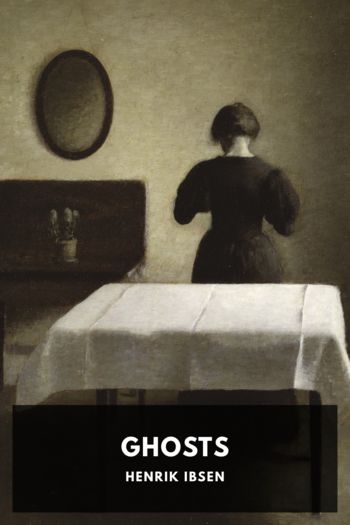Murderous, David Hickson [most read book in the world .TXT] 📗

- Author: David Hickson
Book online «Murderous, David Hickson [most read book in the world .TXT] 📗». Author David Hickson
Murderous
The Gabriel Series – Book Two
David Hickson
Aeon Books
Contents
Chapter 1
Chapter 2
Chapter 3
Chapter 4
Chapter 5
Chapter 6
Chapter 7
Chapter 8
Chapter 9
Chapter 10
Chapter 11
Chapter 12
Chapter 13
Chapter 14
Chapter 15
Chapter 16
Chapter 17
Chapter 18
Chapter 19
Chapter 20
Chapter 21
Chapter 22
Chapter 23
Chapter 24
Chapter 25
Chapter 26
Chapter 27
Chapter 28
Chapter 29
Keep Reading
Enjoy this book?
Want to read even more?
Also by David Hickson
About the Author
One
I believe in ghosts. A belief reinforced the morning I stood in a small country church in the town of Minhoop, where a day earlier thirty-three worshippers had lost their lives. Their blood was spattered over the pews and across the stone floor. The bodies had been removed, leaving behind the roughly marked outlines of their final postures. Their spirits screamed at us from the echoing reaches of the vaulted ceiling with rage.
I have encountered so many ghosts in my past I have learnt to recognise the signs of their presence. The way the policemen hunched their shoulders as they painstakingly worked out the trajectory of the bullets, the way they huddled together around the computer models of the church and shielded the screens from no living person. The involuntary shiver as a young policewoman called out the measurement of the spread of blood splatter before the altar where the minister had gone down with his arms raised as if in benediction.
They were angry, tragic spirits. But not angry with me, which made for a refreshing change. The spirits that haunted me were those of the people whose lives I had ended. They were the ones who never gave up, who visited my nightmares and would follow me to my grave.
“You let your imagination get the better of you, Gabriel,” said Khanyi, but her face was drawn and her dark skin had a blue tinge that told me she felt those ghosts too. “Six children,” she said. “The youngest was four years old.” She gazed at the diminutive outline of the youngest victim, which merged with the outline of an adult who had fallen trying to shield his child from the bullets.
“AK-47,” said the young police captain beside Khanyi. “No point in shielding anyone. The bullets rip straight through and do their damage anyway.” He was also transfixed by the outline. “You seen what you needed to?” he asked.
Khanyi nodded. “Just those,” she said, indicating the words daubed onto the white wall behind the altar. Ten letters, each one about the height of the fallen four-year-old. Dark red letters splashed hurriedly onto the wall, like deep wounds dripping trails of blood. Beneath them a scribbled symbol, like a signature.
“It’s paint,” said the policeman, “not blood. They wanted it to look like blood.” He gave a shiver and said, “I’ll join you in one of those, if you’ve got one to spare.”
“I’ve got a whole packet,” I said.
“He gave up months ago,” said Khanyi, who always felt better when pointing out my weaknesses.
“So did I,” said the policeman. “But you need something to help deal with all this.”
I lit his cigarette on the steps of the church and he cupped his hands around mine to shield the flame from the cutting winter wind. It was late in the morning but the sun had failed to penetrate the thick cloud that smothered the miserable little town of Minhoop.
“Killer must have been known to them,” he said, after exhaling a cloud of smoke downwind from Khanyi, whose face had the non-smoker’s pained expression of intolerance. “Had to have been. We’ve been putting the sequence together, and the shooting started at the altar, not from behind them. He locked the door, walked down the aisle and turned to face them. Not one of them had moved to stop him, as far as we can tell. Then painted those letters while people who’d heard the gunshots were trying to break down the door. Must have slipped out the back moments before they came in.”
“You’ve not released that yet?” said Khanyi. “That he was known to them? None of the news reports have mentioned it.”
“More your domain, isn’t it? The spin doctor stuff.”
“We’re only here because of the words on the wall.”
The policeman nodded and sucked on his cigarette as if it was a straw through which he was drawing his last breath. His eyes lingered on Khanyi’s face as he took in her full glory. Her high cheekbones and wide eyes gave her the sculpted beauty of a cartoon warrior. She was dressed in black in deference to the tragic circumstances, but the lack of colour in her outfit was made up for by the brevity of the skirt and the inadequate capacity of the jacket, which was held closed by a large silver button, strained to its limit. The policeman’s gaze loitered a while.
“Makes it easier to swallow though, doesn’t it?” he said, and blew smoke out of the side of his mouth. “A lone madman is better than a politically motivated gang.”
“Is that why there’s been no mention of the words on the wall?” I asked.
“Better some pissed off farm worker than the start of a race war,” he said and sucked on the cigarette again.
“You’ll be removing the words,” said Khanyi. It wasn’t a question.
He nodded without taking the cigarette from his mouth or removing the fingers that held it, so that the glowing end bounced up and down. “Chief wants to limit the panic,” he said. “If you’ve got what you need, we can cover it. The techies have the paint samples and everything for the labs.”
“Best you clear it before they allow the press in.”
“Won’t make much difference. Words or no words, can’t change the facts, can we?”
Khanyi shook her head, and we each retreated into our own thoughts as the policeman and I finished our cigarettes. The Minhoop Massacre had already attracted international headlines, and reactions were pouring in from around the world. It had not taken long for anyone to notice that all thirty-three victims were pale-skinned.





Comments (0)